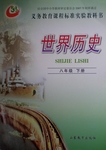题目内容
His idea,though good,needs ________ out.
- A.being tried
- B.to try
- C.tried
- D.to be tried
①need/want/require+doing =need/want/require+to be done ②be worth+doing =be worthy of being done =be worthy to be done。

 探究与巩固河南科学技术出版社系列答案
探究与巩固河南科学技术出版社系列答案“Dad! He took a book without paying!” I yelled.
My father looked surprised. Before the boy could say anything, his mother grabbed his arm and shook it. “Is it true? You stole? Tell me!”
Everyone was quiet. The boy began to cry, and he nodded his head. He pulled out the comic book (漫画书) from under his shirt.
“Oh, Mr. Kim. I am sorry! My Ted made a big mistake!” Mrs. Diaz told my father. She tried to take the comic book, but Ted wouldn’t let go.
“It’s OK. He can keep it,” my father said with a smile.
“Oh no,” Mrs. Diaz said. “Let me pay right now ...” She dug in her purse. “How much?”
“Three seventy-five.”
Mrs. Diaz’s eyes widened, and she dug deeper. I saw her mouth make a small line. “Three seventy-five?” she asked.
“It’s OK. You can pay later,” my father said.
“No,” Mrs. Diaz said. She kept looking in her purse. “I have money here.”
I felt bad for yelling, for I realized that Ted had tried to steal the comic book because he didn’t have the money. Maybe the boy could have a job, I thought.
I had an idea.
“What if he worked with me?” I asked. They turned to me.
I said, “He can work with me to pay for the comic book.”
“Good,” my father said smiling at me. Mrs. Diaz nodded. She turned to her son, “You hear? You will work and buy the comic book!”
“Yes, Mama,” Ted said, hanging his head.
As they left, Ted looked back, and though he still seemed sad, he stuck out (伸出) his tongue at me.
Ted has been working here for two weeks. He has paid for the comic book, but my father says he is such a good worker that he can work with me as long as he wants. We are friends now.
1.Where did the story most probably take place?
|
A.In a classroom. |
B.In a supermarket. |
C.At a bookstore. |
D.At a library. |
2.By saying “but Ted wouldn’t let go” in Paragraph 4, the author means Ted ______.
|
A.took the book by mistake |
B.wanted to keep the book |
|
C.didn’t want to go home |
D.didn’t think he was wrong |
3.From the underlined sentences in the eighth paragraph, we may infer that Mrs. Diaz ______.
|
A.didn’t think her son stole the book |
B.had been out of work for a long time |
|
C.forgot to take money with her that day |
D.couldn’t afford to pay for the book |
4.In the last paragraph, what does the author mainly tell?
|
A.His idea was successful. |
B.Ted didn’t like the job. |
|
C.He liked Ted very much. |
D.Ted was a naughty boy. |